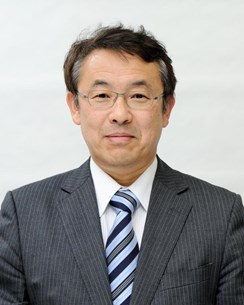Meeting
2023 ASCO Annual Meeting

Aichi Cancer Center Hospital, Aichi, Japan
Hiroji Iwata , Naoki Niikura , Hirohiko Sueki , Tomoyuki Aruga , Toru Mukohara , Kokoro Kobayashi , Hiroyuki Yasojima , Takahiro Nakayama , Tatsuya Toyama , Takanori Ishida , Toshinari Yamashita , Masato Takahashi , Takaaki Fujii , Mona El-Hashimy , Michelle Kristine Miller , Ryohei Kurihara
Background: The PIK3CA oncogene mutation, seen in ~40% of patients with hormone receptor–positive (HR+), human epidermal growth factor receptor 2–negative (HER2-) advanced breast cancer (aBC), is associated with endocrine treatment resistance and shorter survival. Alpelisib, an α-selective PI3K inhibitor and degrader, was established as standard therapy in combination with fulvestrant for patients with HR+, HER2-, PIK3CA-mutated aBC following progression on/after endocrine-based regimen based on the phase 3 SOLAR-1 study. However, alpelisib is not yet approved in Japan. In the SOLAR-1 study, a high percentage of Japanese patients experienced dose reductions/interruptions (78.5% vs 84.4%), and/or discontinuation (56.3% vs 25.0%) of alpelisib in early stages compared with overall population, due to adverse events such as rash and hyperglycemia. Thus, it is difficult to assess the consistency of the benefit of alpelisib + fulvestrant in Japanese patients as compared to overall population due to the short duration of alpelisib exposure and low-dose intensity. The EPIK-B6 study aims to determine the recommended dose (RD) of alpelisib in Japanese patients as well as assess the efficacy and safety of alpelisib + fulvestrant in Japanese men and postmenopausal women with HR+, HER2-, PIK3CA-mutated aBC, which progressed while on/after aromatase inhibitor treatment, prior/post CDK 4/6i use. Methods: The EPIK-B6 study is designed as a phase 2, open-labelled, 2-part, multicenter study. Part 1 is to determine RD of alpelisib to be used in part 2. Part 2 is designed to assess the efficacy and safety of alpelisib (RD starting on cycle 1 day 1 [C1D1]) + fulvestrant (500 mg on C1D1 and C1D15, and D1 of subsequent cycles) after completion of part 1, in participants with/without prior CDK 4/6i use. Adult Japanese men or postmenopausal women with confirmed HR+, HER2-, PIK3CA-mutated aBC and ≥1 measurable lesion as per RECIST 1.1 criteria are eligible. Patients previously treated with fulvestrant, any PI3K, mTOR or AKT inhibitors are excluded. Use of prophylactic antihistamine is highly recommended for prevention of rash. The primary endpoint for part 2 is overall response rate based on assessments per RECIST 1.1. Secondary endpoints include progression free survival, overall survival, clinical benefit rate, duration of response, time to response, time to deterioration of ECOG performance status, safety, tolerability, and pharmacokinetics. Part 1 has been completed, and recruitment for part 2 is ongoing until August 2023 approximately. As of December 2022, 9 and 8 patients are enrolled in part 1 and 2, respectively. The study will include approximately 50 participants. Primary Analysis is planned in 2024 after at least 6 months follow-up period. Clinical trial information: NCT04524000.
Disclaimer
This material on this page is ©2024 American Society of Clinical Oncology, all rights reserved. Licensing available upon request. For more information, please contact licensing@asco.org
2023 ASCO Annual Meeting
Poster Session
Breast Cancer—Metastatic
Breast Cancer
Hormone Receptor-Positive
NCT04524000
J Clin Oncol 41, 2023 (suppl 16; abstr TPS1117)
10.1200/JCO.2023.41.16_suppl.TPS1117
TPS1117
335a
Abstract Disclosures
First Author: Michelino De Laurentiis
2023 ASCO Annual Meeting
First Author: Sara A. Hurvitz
2023 ASCO Annual Meeting
First Author: Natalija Dedic Plavetic
2022 ASCO Annual Meeting
First Author: Cristina I. Truica